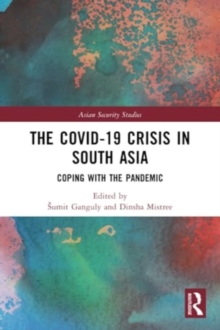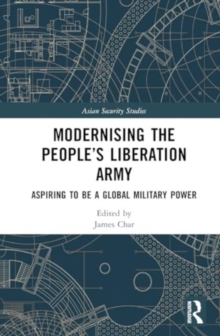
Understanding Security Practices in South Asia : Securitization Theory and the Role of Non-State Actors PDF
by Monika (University of Sydney, Australia) Barthwal-Datta
Part of the Asian Security Studies series
Description
This book explores the ways in which non-state actors (NSAs) in South Asia are involved in securitizing non-traditional security challenges in the region at the sub-state level.
South Asia is the epicentre of some of the most significant international security challenges today.
Yet, the complexities of the region’s security dynamics remain under-researched.
While traditional security issues, such as inter-state war, border disputes and the threat of nuclear devastation in South Asia, remain high on the agendas of policy-makers and academics both within and beyond the region, scant attention has been paid to non-traditional or ‘new’ security challenges.
Drawing on various case studies, this work offers an innovative analysis of how NSAs in South Asia are shaping security discourses in the region and tackling security challenges at the sub-state level.
Through its critique of securitization theory, the book calls for a new approach to studying security practices in South Asia – one which considers NSAs as legitimate security actors.
This book will be of much interest to students of security studies, Asian security, Asian politics, critical security studies, and IR in general.
Information
-
Download - Immediately Available
- Format:PDF
- Pages:216 pages, 3 Line drawings, black and white
- Publisher:Taylor & Francis Ltd
- Publication Date:04/05/2012
- Category:
- ISBN:9781136322808
Information
-
Download - Immediately Available
- Format:PDF
- Pages:216 pages, 3 Line drawings, black and white
- Publisher:Taylor & Francis Ltd
- Publication Date:04/05/2012
- Category:
- ISBN:9781136322808










